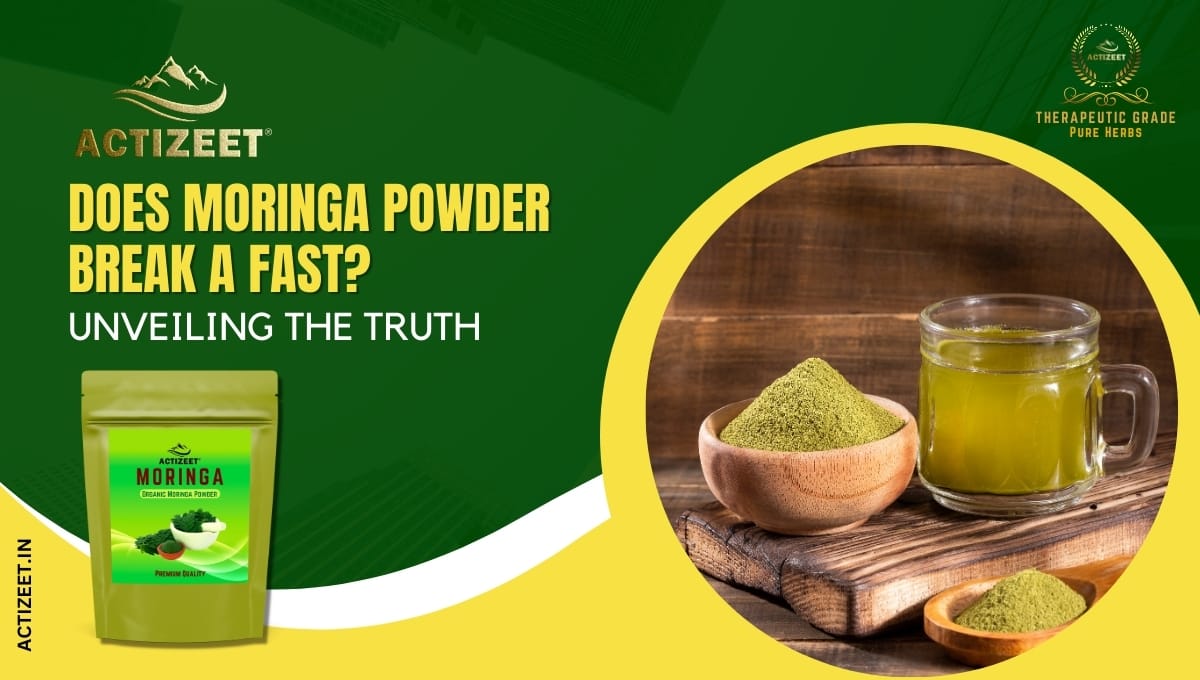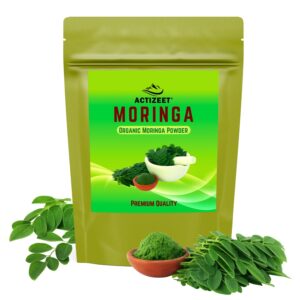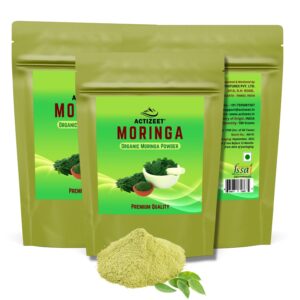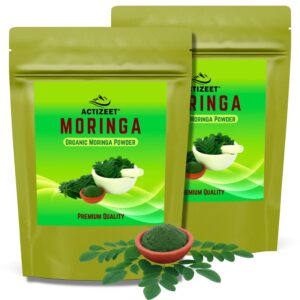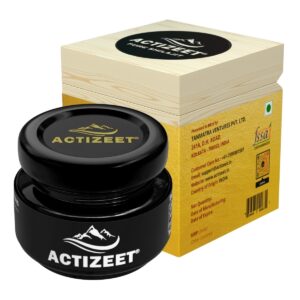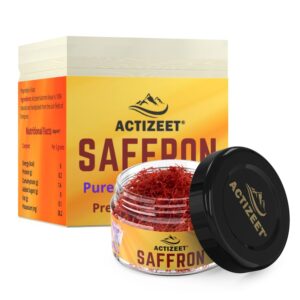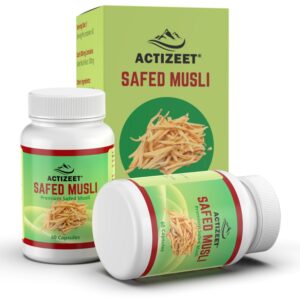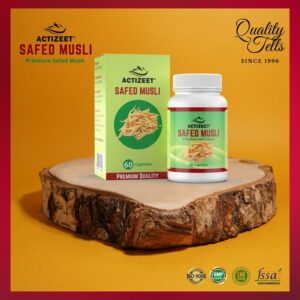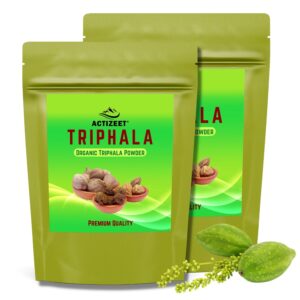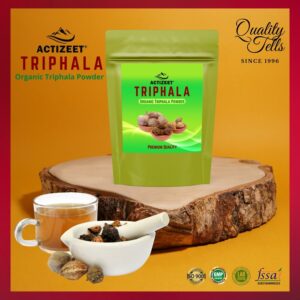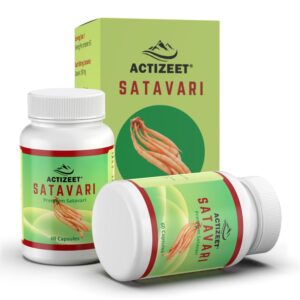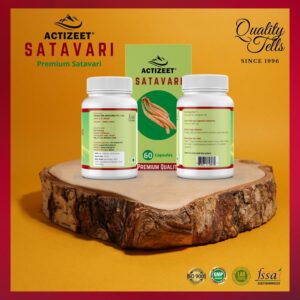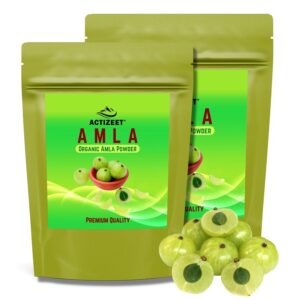So, you might be wondering, What exactly is moringa powder, and why is it gaining so much attention? Well, let me enlighten you. Moringa powder is derived from the leaves of the moringa tree, scientifically known as Moringa oleifera.
This tree has been revered for centuries in traditional medicine due to its plethora of health benefits. From its rich nutrient profile to its potential medicinal properties, moringa powder has become a popular superfood in recent years.
Now that we’ve covered the basics of moringa powder, let’s delve into the world of fasting. Fasting has been practised for thousands of years across various cultures and religions as a means to cleanse the body and achieve spiritual enlightenment.
In recent times, fasting has gained popularity not only for its potential health benefits but also as an effective weight-loss strategy. However, it’s important to note that there isn’t just one type of fasting; it comes in different forms.
Table of Contents
ToggleMoringa Powder and Its Nutritional Benefits
Moringa powder is often touted as a nutritional powerhouse due to its impressive array of vitamins, minerals, antioxidants, and essential amino acids. It contains significant amounts of vitamins A, C, E, and K – all vital for maintaining overall health and immune function. Additionally, this green superfood is a rich source of calcium and iron which are essential for strong bones and healthy blood cells.
Furthermore, moringa powder boasts an impressive protein content—a crucial macronutrient responsible for building muscle tissue and supporting various bodily functions. It also contains notable amounts of carbohydrates, which provide energy, while healthy fats contribute to satiety and help absorb fat-soluble vitamins present in this miraculous powder.
Understanding the Concept of Breaking a Fast
Definition of breaking a fast
When we talk about breaking a fast, we refer to the act of consuming food or beverages that provide nutrients and calories, thus ending the period of abstaining from eating. It is crucial to understand that fasting involves intentional periods of restriction from food for various reasons, such as weight management, spiritual practices, or health benefits. Breaking fast marks the transition from this period of restricted eating back into regular eating patterns.
The importance of maintaining the physiological effects of fasting
Maintaining the physiological effects of fasting is essential, as it allows our bodies to experience various beneficial changes at a cellular level. During fasting, our metabolism adjusts, insulin levels decrease, and mechanisms like autophagy (the process where cells remove damaged components) kick in. These physiological effects contribute to improved insulin sensitivity, reduced inflammation, and even potential longevity benefits.
Breaking a fast too abruptly or with foods that can significantly impact blood sugar levels may disrupt these beneficial processes and hinder some of the advantages associated with fasting. Therefore, it becomes important to consider what we consume when breaking our fasts to ensure we maximize the potential benefits derived from extended periods of not eating.
Nutritional Composition of Moringa Powder
A Powerhouse of Macro and Micronutrients
Moringa powder, derived from the leaves of the Moringa oleifera tree, is a nutritional powerhouse that can provide a wide range of essential macro and micronutrients. Let’s delve into its comprehensive breakdown to truly comprehend its remarkable potential as a dietary supplement.
Protein, carbohydrate, and healthy fat content:
Moringa powder boasts an impressive protein content, making it an attractive option for vegans and vegetarians seeking plant-based sources. A single serving offers approximately 2 grams of protein, contributing to muscle growth and repair.
On the carbohydrate front, Moringa provides around 4 grams per serving size. These carbohydrates act as a significant energy source for the body.
Don’t be alarmed; it primarily consists of dietary fibre that aids digestion and promotes satiety. As for healthy fats, Moringa powder contains traces of monounsaturated fats that assist in nutrient absorption.
Vitamins (A, C, E, K) and Minerals (Calcium, Iron) Concentration
Here’s where things get even more exciting! Moringa powder is loaded with an array of vitamins and minerals that can bolster your overall health and well-being.
Vitamins: This miraculous green powder serves as a natural multivitamin supplement. It is packed with Vitamin A – critical for maintaining healthy vision; Vitamin C – known for its immune-boosting properties; Vitamin E – a powerful antioxidant that supports skin health; and Vitamin K – essential for blood clotting mechanisms.
Minerals: The mineral content in Moringa powder is equally impressive.Calcium plays a pivotal role in maintaining strong bones and teeth while supporting proper muscle function. Iron is vital for carrying oxygen to body tissues, ensuring optimal energy levels.
Moringa also contains other essential minerals such as potassium, magnesium, and zinc, which contribute to various bodily functions. With its abundant macro and micronutrients, Moringa powder stands as a nutrient-rich addition to any diet.
Its diverse nutritional profile makes it a compelling choice for those seeking an easily accessible source of vitamins and minerals. But before we jump to conclusions about consuming it during fasting periods, let’s explore its potential impact on insulin levels in the next section.
Impact on Insulin Levels During Fasting
How consuming Moringa powder affects insulin levels during fasting
When it comes to fasting, one of the key concerns is maintaining low insulin levels in order to reap its metabolic benefits. Insulin is a hormone produced by our bodies that helps regulate blood sugar levels. Consuming foods that spike insulin can disrupt the fasting state and inhibit the body’s ability to burn stored fat for energy.
Now, let’s talk about how Moringa powder fits into this equation. The good news is that Moringa powder has been found to have a minimal impact on insulin levels during fasting.
This is mainly due to its low glycemic index (GI). The GI measures how quickly a food causes blood sugar levels to rise after consumption.
Foods with a high GI quickly raise blood sugar and subsequently trigger an insulin response. However, Moringa powder has a relatively low GI, which means it has a slower and steadier effect on blood sugar levels and insulin secretion.
Potential for minimal impact due to low glycemic index (GI)
One of the reasons why Moringa powder has a minimal impact on insulin levels during fasting is because of its low glycemic index (GI). The GI scale ranges from 0 to 100, with higher values indicating foods that raise blood sugar more rapidly. Foods with a high GI score are typically those rich in refined carbohydrates or sugars.
Moringa powder, on the other hand, ranks quite low on the GI scale. This means that when consumed during fasting, it does not cause significant spikes in blood sugar levels or trigger an overly pronounced release of insulin.
As a result, your body can continue reaping some of the benefits associated with lower insulin levels during fasting. Additionally, another factor worth considering is the role of dietary fibre found in Moringa powder.
Fibre is an indigestible carbohydrate that helps slow down the absorption of sugars into the bloodstream, thus preventing sharp spikes in blood sugar levels. Moringa powder is naturally rich in dietary fibre, which further contributes to its ability to regulate blood sugar and minimize insulin response.
So, when it comes to Moringa powder and fasting, you can breathe a sigh of relief knowing that its low glycemic index and fibre content make it unlikely to significantly impact your insulin levels during fasting. However, it’s important to remember that individual responses may vary, and if you have any concerns or specific health conditions related to insulin regulation, consulting with a healthcare professional is always a wise decision.
Caloric Content and Autophagy Disruption
Moringa Powder: A Nutritional Powerhouse
When considering the impact of moringa powder on fasting, one crucial aspect to delve into is its caloric content. Moringa powder is renowned for its exceptional nutritional profile, packed with a multitude of essential vitamins, minerals, and antioxidants that promote overall health. However, the concern arises when we assess whether the caloric intake from consuming this superfood during fasting can disrupt the autophagy process.
Unveiling the Caloric Content of Moringa Powder
To determine if moringa powder disrupts autophagy during fasting, it is imperative to assess its caloric content. On average, one tablespoon (about 7 grams) of moringa powder contains approximately 20 calories. While this may seem like a substantial amount when practicing strict intermittent fasting or prolonged fasting, it’s important to put it into perspective.
To maintain autophagy, experts generally recommend staying under a certain calorie threshold during fasting periods – typically around 50-100 calories per day or less. Considering that a single tablespoon of moringa powder falls well within this range, consuming it in moderation should not significantly interfere with the autophagy process.
Furthermore, it’s worth mentioning that autophagy is primarily triggered by extended periods of reduced nutrient intake rather than complete abstinence from calories. As such, incorporating minimal calorie sources like moringa powder should not completely halt autophagy but rather have a minimal impact on its progression.
Therefore, based on its relatively low caloric content per serving size and considering the nature of autophagy induction during fasting, moderate consumption of moringa powder should not pose significant disruptions to this beneficial cellular process. Stay tuned for section VI where we will explore potential benefits versus risks associated with consuming moringa powder during fasting.
Potential Benefits vs Risks
Benefits associated with consuming Moringa powder during fasting
One of the significant advantages of incorporating Moringa powder into your fasting routine is its remarkable nutritional profile. Packed with a wide range of essential vitamins and minerals, Moringa powder offers a natural boost to your overall nutrient intake during restricted eating windows.
This superfood is rich in vitamin A, vitamin C, vitamin E, and vitamin K, which play vital roles in supporting immune function, promoting healthy skin and vision, and aiding blood clotting. Additionally, Moringa powder contains significant amounts of calcium and iron, essential minerals that contribute to maintaining strong bones and preventing anaemia.
Impact on nutrient intake during restricted eating windows
When following a fasting regimen that restricts the time frame for consuming food, it becomes crucial to maximize nutrient intake within that limited eating window. Here’s where Moringa powder can be a valuable ally. Its impressive array of nutrients allows you to obtain a concentrated dose of essential vitamins and minerals without compromising your fasting goals.
By adding Moringa powder to your diet during these periods, you can replenish key nutrients that may otherwise be lacking due to limited food consumption. This can help ensure your body receives the necessary nourishment it needs for optimal functioning despite the restricted timeframe.
Promotion of satiety due to high fibre content
Another notable benefit of including Moringa powder in your fasting routine lies in its high fibre content. Fibre plays an important role in promoting satiety or feelings of fullness after meals by slowing down digestion and regulating appetite hormones.
By incorporating Moringa powder into your fasting regime through smoothies or other recipes, you’re likely to experience increased satiety levels during the eating window. The fibre present in Moringa powder not only aids in curbing hunger but also supports healthy digestion and can help prevent constipation.
This can be particularly beneficial when adhering to intermittent fasting protocols, as it may assist in sustaining energy levels and reducing the temptation to overindulge during the eating window. Overall, the potential benefits of consuming Moringa powder during fasting include enhanced nutrient intake, improved satiety levels due to its high fibre content, and a natural boost in vitamins and minerals crucial for maintaining overall health.
However, it’s important to consider individual factors such as personal health conditions or dietary restrictions that may influence the suitability of Moringa powder within your fasting routine. As with any dietary consideration, it is recommended to consult with a healthcare professional or nutritionist for personalized guidance based on your specific needs and goals.
Contrasting Opinions within the Fasting Community
Different viewpoints regarding the inclusion or exclusion of Moringa powder while fasting.
When it comes to the question of whether Moringa powder breaks a fast, there are differing opinions within the fasting community. Some argue that since Moringa powder is low in calories and has a minimal impact on insulin levels, it can be consumed during fasting without disrupting its benefits. They believe that the nutritional value provided by Moringa outweighs any potential drawbacks.
On the other hand, some firmly believe that consuming Moringa powder during fasting breaks its intended purpose. They assert that even though it may be low in calories, any ingestion of nutrients outside of the designated eating window disrupts autophagy – a cellular cleansing process believed to be one of the key benefits of fasting.
Arguments supporting the use of enhanced nutrition
Proponents of including Moringa powder while fasting argue that its rich nutritional profile makes it an excellent addition to one’s fasting routine. They highlight how Moringa is packed with essential vitamins, minerals, and antioxidants that can help bridge any nutrient gaps during restricted eating windows.
In this view, incorporating Moringa ensures a well-rounded intake and helps prevent deficiencies commonly associated with strict dietary restrictions. Furthermore, supporters contend that consuming Moringa powder promotes satiety due to its high fibre content.
This can aid in managing hunger pangs during fasting periods and make adherence to time-restricted eating easier for individuals who struggle with cravings. By providing a sense of fullness without adding substantial calories or disrupting insulin levels significantly, they argue that incorporating Moringa into one’s fast can enhance overall satisfaction and adherence to a fasting regimen.
Conclusion
The question of whether Moringa powder breaks a fast remains a topic of debate within the fasting community. While some argue that its nutritional benefits justify its inclusion, others maintain that any ingestion of nutrients during fasting disrupts the cellular cleansing process of autophagy.
Ultimately, it is important to consider individual goals, preferences, and the specific fasting method being followed when deciding whether to include Moringa powder in one’s fast. Regardless of the stance taken, it is crucial to remember that fasting is a personal journey, and what works for one individual may not work for another.
It is always advisable to consult with a healthcare professional or nutritionist before making any significant changes to your diet or fasting routine. By staying informed and listening to your body’s needs, you can find a balanced approach that supports your overall health and wellness goals.
ACTIZEET Moringa Powder
-
Rated 4.85 out of 5
₹1,200.00Original price was: ₹1,200.00.₹900.00Current price is: ₹900.00. Incl. GST ADD TO CART Buy Now -
Rated 4.84 out of 5
₹3,600.00Original price was: ₹3,600.00.₹2,100.00Current price is: ₹2,100.00. Incl. GST ADD TO CART Buy Now -
Rated 4.80 out of 5
₹2,400.00Original price was: ₹2,400.00.₹1,600.00Current price is: ₹1,600.00. Incl. GST ADD TO CART Buy Now
Related Products
-
Himalayan Shilajit, Pure shilajit, Shilajit, SHUDDH SURYA TAPI SHILAJIT
Rated 4.74 out of 5₹4,950.00Original price was: ₹4,950.00.₹3,950.00Current price is: ₹3,950.00. Incl. GST ADD TO CART Buy Now -
Rated 4.86 out of 5
₹2,400.00Original price was: ₹2,400.00.₹1,600.00Current price is: ₹1,600.00. Incl. GST ADD TO CART Buy Now -
Rated 4.82 out of 5
₹2,400.00Original price was: ₹2,400.00.₹1,600.00Current price is: ₹1,600.00. Incl. GST ADD TO CART Buy Now -
Rated 4.84 out of 5
₹2,400.00Original price was: ₹2,400.00.₹1,600.00Current price is: ₹1,600.00. Incl. GST ADD TO CART Buy Now
-
Rated 4.00 out of 5
₹2,400.00Original price was: ₹2,400.00.₹1,600.00Current price is: ₹1,600.00. Incl. GST ADD TO CART Buy Now -
Rated 4.80 out of 5
₹2,400.00Original price was: ₹2,400.00.₹1,600.00Current price is: ₹1,600.00. Incl. GST ADD TO CART Buy Now -
Rated 4.71 out of 5
₹2,400.00Original price was: ₹2,400.00.₹1,600.00Current price is: ₹1,600.00. Incl. GST ADD TO CART Buy Now -
Rated 0 out of 5
₹2,400.00Original price was: ₹2,400.00.₹1,600.00Current price is: ₹1,600.00. Incl. GST ADD TO CART Buy Now
Related posts:
- Unveiling the Truth: Does Moringa Powder Truly Work?
- Unveiling the Truth: Does Moringa Powder Contain Vitamin B12?
- Unveiling the Mysteries: How Moringa Powder Works
- Discover the Truth: Moringa Powder & Blood Pressure
- Moringa Powder in Panaji (Goa)
- Moringa Powder in Gangtok (Sikkim)
- Moringa Powder in Imphal (Manipur)
- Moringa Powder in Aizawl (Mizoram)

